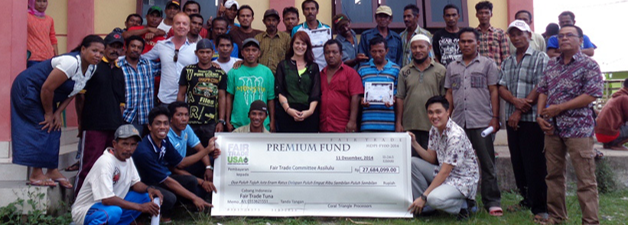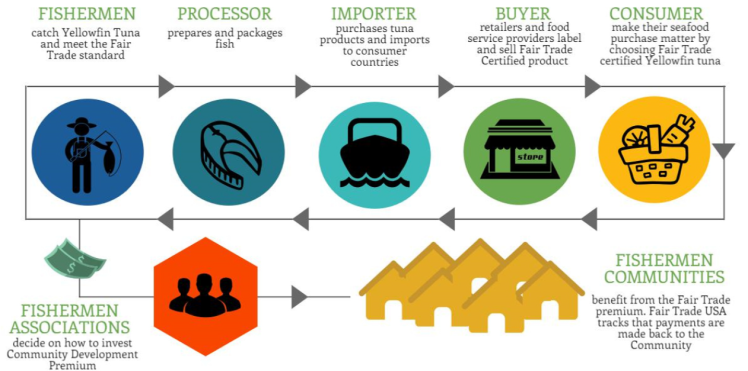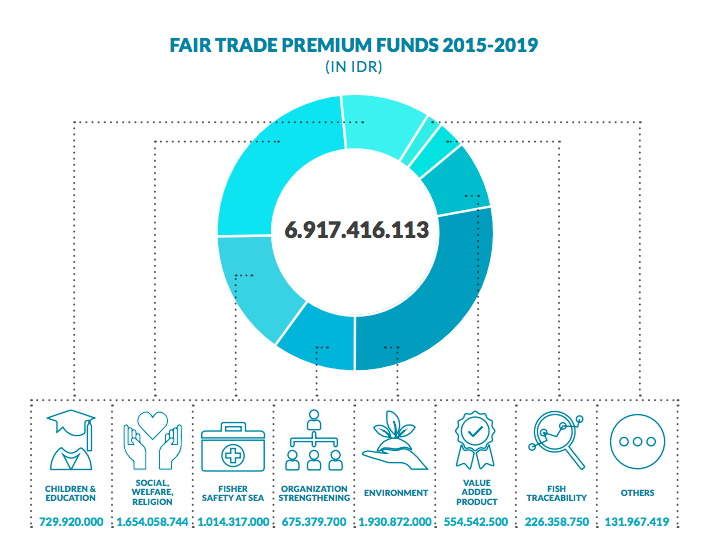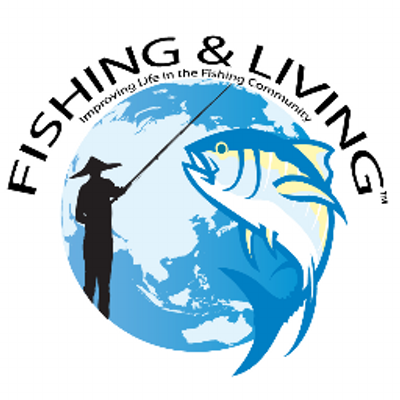What is the Fair Trade Premium?
For every kg of tuna exported, fishermen earn a premium – an additional sum of money paid into a communal fund used to improve the quality of their lives. This Fair Trade Premium is paid out quarterly to the fishermen, who can collectively agree to invest it in projects most needed by the community. The Fair Trade Premium may be invested in social, economic or environmental projects such as building schools, providing training courses to enhance their businesses and operations or on environmental awareness campaigns.

Fishermen receiving Fair Trade Premium
How does the Fair Trade Premium work?
Under the Fair Trade standard, the Fair Trade premium can be received by a Fair Trade Committee which represents a group of Fair Trade fishermen associations. As part of the standard, the premium is transferred via a Market Access Partner (MAP). In this case, the Market Access Partner is Coral Triangle Processor/Anova USA who is responsible for submitting the premium to the Fair Trade Committees. The premium is defined by Fair Trade USA and consists of approximately 10% of the price at landing. The premium is then spent on community improvement projects.


Total amount of Fair Trade Premium funds collected in Maluku between 2015 and 2019 – equivalent to ~$480,000 and the various sectors they were invested in. Source: MDPI Annual Report 2019
Example of Fair Trade Premium Investment
A number of longterm programs have been invested in related to fishers’ safety, education, pension saving and business capital. Fishers’ safety programs include the provision of distress call (SOS) equipment at sea, GPS-compasses, raincoats, first-aid medical supplied, safety jacket renewal, fishers’ boat renewal, and payment for Jasindo (Jasa Indonesia) insurance.
Based on a number of unexpected incidents in which some fishermen passed away while fishing at the sea or due to
sickness on land, the need to devise a tailored insurance coverage plan for fishermen arose. Upon approval from the the Fair Trade committee and Fishers’ associations, MDPI assisted the fisher’s insurance registration process in some working areas using the government insurance program Jasindo. With this insurance coverage, the families of fishermen that have passed away are exempt from debt and are temporarily supported financially using the insurance money. Currently, over 130 fishermen are registered and covered by the insurance.
